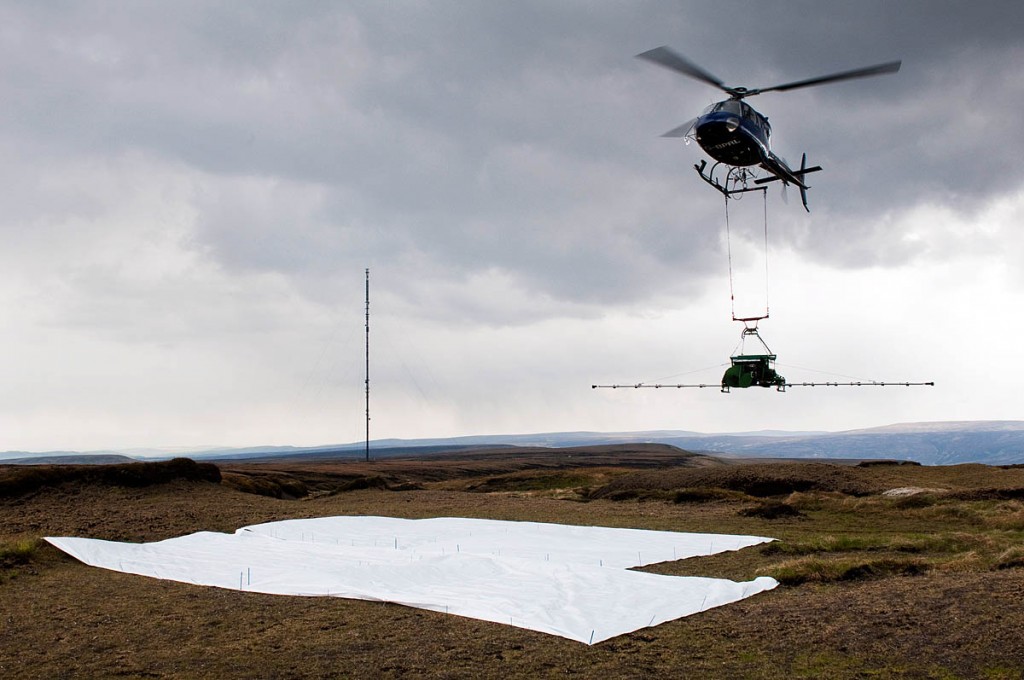Work on conserving peat moorlands in the Pennines have saved as much carbon dioxide as a 7-million-mile car journey would produce.
A carbon audit by the Moors for the Future Partnership showed work to protect the moors in the Peak District and South Pennines produces only a fraction of the amount of CO2 lost annually in the area from bare peat.
Extensive work over the five-year programme, which includes the use of helicopters to transport materials, created 37 times less than the amount of the greenhouse grass that escapes into the atmosphere each year.
The partnership said once MoorLIFE works in the 2,500ha (6,178 acres) to stabilise damaged peat and re-introduce vegetation are complete the benefits in reduced emissions continue year on year.
Blanket bog is an internationally important wetland habitat, providing a protective layer that covers areas of deep peat, a large store of carbon, but more than 200 years of industrial pollution have left areas of peat exposed and vulnerable to erosion and the threat of wildfires.
The report illustrates the vital role protecting blanket bog plays in the fight against climate change, as active blanket bogs create peat and store carbon rather than releasing it into the atmosphere and water supply.
Further calculations reveal that since it was set up by the Peak District National Park Authority in 2003, the conservation efforts of the partnership have stabilised more than 480ha (1,186 acres) of bare and eroding peat, and prevented the loss of carbon equivalent to more than 2,000 tonnes of CO2 per year.
Moors for the Future’s Partnership manager Chris Dean said: “Our pioneering work to produce what we believe is the first carbon audit of moorland conservation has given us the tools to prove the benefit of protecting active blanket bog.
“We estimate that the amount of annual carbon loss prevented by our work is equivalent to the CO2 emissions caused by driving more than 7 million miles in an average car.
“Blanket bogs across the Peak District and South Pennines have been devastated over the years by pollution from the industrial revolution, creating a climate catastrophe for the UK.
“We are proud to be able to prove that our work can turn a climate catastrophe into an important solution to the problems caused by climate change.”
Rachael Maskill, MoorLIFE monitoring officer, who produced the report said: “This carbon audit enables us to calculate the remarkable contribution that these moorlands are making towards meeting international climate change targets.
“Our work is carried out in remote, inaccessible locations and often during the worst winter weather to ensure that we don’t disturb breeding birds, so helicopters play a vital part.
“This carbon audit has shown that the debt of carbon emissions built up during our work is repaid over and over as these iconic landscapes are protected into the future.”
Building on more than 10 years of monitoring and research, including an innovative report on how moorland can help protect communities from flooding, the partnership’s team will repeat the carbon audit on future work carried out by the partnership.
This includes the MoorLIFE 2020 project, the largest ever EU award to a UK nature conservation project, which recently received €16m funding, to protect active blanket bog.

Lynne Fox
24 November 2015Brilliant. Keep up the good work.
Mark
24 November 2015Also would be a good idea to cut the £56 a hecter owners of heather moorland owners get from the taxpayer in England. They slash, burn and drain the bogs to create monoculteral desert where only game birds thrive.
Dave
25 November 2015The work done to restore Kinder is magnificent.
and Mark is right.